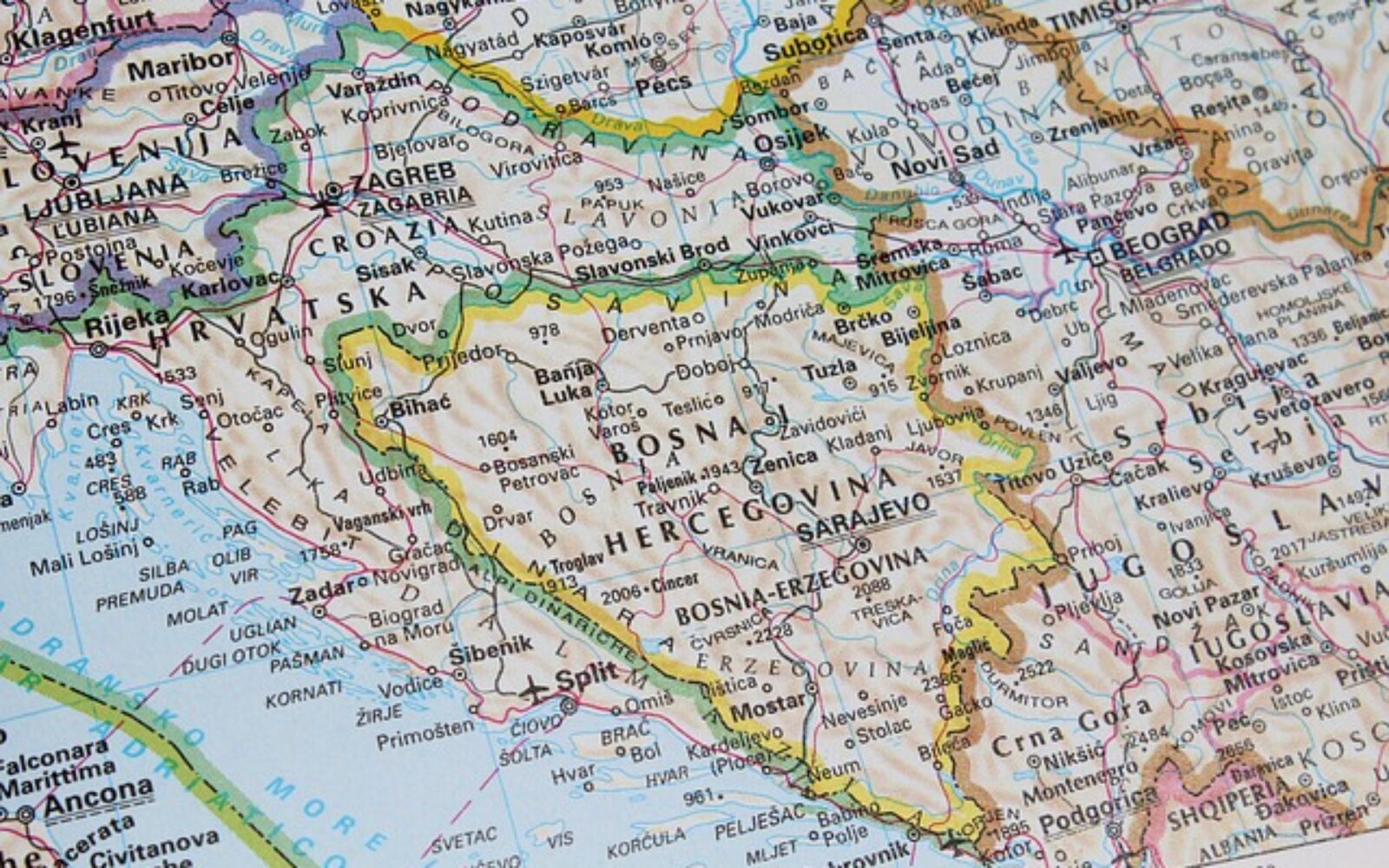Analyzing The Rise Of ABUSA And Its Potential Impact

Table of Contents
Factors Contributing to the Rise of ABUSA
Several interconnected factors contribute to the rise of ABUSA. These can be broadly categorized into economic, social, and political dimensions.
Economic Factors
Economic conditions play a significant role in fueling ABUSA's growth. The following factors create a breeding ground for ABUSA activities:
- Increased Unemployment: High unemployment rates leave individuals vulnerable to exploitation and recruitment by ABUSA. The desperation for income can make individuals susceptible to promises of financial gain, even if it involves engaging in harmful activities.
- Economic Inequality: A widening gap between the rich and poor creates social unrest and resentment, providing fertile ground for ABUSA to exploit existing grievances and attract followers. This inequality can manifest as a lack of opportunity, further increasing vulnerability.
- Global Financial Instability: Global economic downturns and financial crises can exacerbate existing economic problems, creating instability that ABUSA can leverage to its advantage. This instability undermines trust in established systems, making alternative ideologies like ABUSA more appealing.
These economic factors create a climate of uncertainty and desperation, making individuals more susceptible to the allure of ABUSA.
Social Factors
Social and cultural aspects significantly contribute to ABUSA's prevalence. These factors create vulnerabilities that are often exploited:
- Social Unrest: Social unrest, often stemming from inequality and lack of opportunity, provides fertile ground for ABUSA to gain traction. This unrest can manifest as protests, riots, or general dissatisfaction with the status quo.
- Lack of Education: A lack of education and access to information leaves individuals vulnerable to manipulation and misinformation campaigns propagated by ABUSA. Limited education can result in a lack of critical thinking skills, making individuals more susceptible to propaganda.
- Misinformation Campaigns: Deliberate dissemination of false information by ABUSA and its supporters can sway public opinion and create a climate of fear and distrust. This misinformation can target specific groups, exacerbating existing tensions and fostering support for ABUSA.
Understanding these social dynamics is crucial for developing targeted interventions to counter ABUSA's influence.
Political Factors
Political instability and weak governance play a significant role in the rise of ABUSA:
- Weak Governance: Weak governance, characterized by corruption, inefficiency, and lack of accountability, creates an environment where ABUSA can thrive. This weakness creates a vacuum that ABUSA can fill, offering an alternative power structure.
- Corruption: Corruption within government institutions erodes public trust and weakens the state's ability to respond effectively to ABUSA's activities. This corruption can create opportunities for ABUSA to infiltrate and leverage existing networks.
- Lack of Accountability: A lack of accountability for human rights abuses and other crimes further emboldens ABUSA and creates a climate of impunity. This lack of consequence creates a perception that ABUSA operates outside the rule of law, increasing its attractiveness to some.
These political factors create an environment where ABUSA can operate with relative impunity, further contributing to its growth.
Potential Impact of ABUSA on Various Sectors
The rise of ABUSA has far-reaching consequences across various sectors.
Impact on the Economy
ABUSA's activities can severely damage economic stability:
- Reduced Investment: The uncertainty and instability created by ABUSA deter foreign and domestic investment, hindering economic growth. This can lead to capital flight and a decline in economic activity.
- Job Losses: ABUSA's activities can lead to job losses due to disruptions in business operations, damage to infrastructure, and decreased consumer confidence. The instability can negatively impact all sectors of the economy.
- Damage to Infrastructure: Attacks on critical infrastructure, often associated with ABUSA, disrupt economic activity and lead to significant financial losses. Repairing this damage can strain public resources.
Impact on Social Stability
ABUSA undermines social cohesion and stability:
- Increased Crime Rates: ABUSA activities are often linked to increased crime rates, including violence, extortion, and theft, creating a climate of fear and insecurity.
- Social Unrest: ABUSA can exacerbate existing social tensions, leading to increased social unrest and even violent conflict. This unrest can further destabilize the region and impact the lives of ordinary citizens.
- Community Divisions: ABUSA's actions can deepen existing community divisions along ethnic, religious, or political lines, hindering reconciliation and peacebuilding efforts. This division can further empower ABUSA and make it harder to combat.
Impact on National Security
ABUSA poses a significant threat to national security:
- Threats to Critical Infrastructure: ABUSA's targeting of critical infrastructure, such as power grids, transportation networks, and communication systems, can disrupt essential services and undermine national security. These attacks can have far-reaching consequences for the entire country.
- Increased Terrorism Risks: ABUSA's activities can create conditions that are conducive to the growth of terrorist groups, increasing the risk of terrorist attacks and further destabilizing the region. This can impact both domestic and international security.
Mitigation Strategies and Future Outlook for ABUSA
Addressing the ABUSA challenge requires a comprehensive and multi-pronged approach.
Policy Recommendations
Effective policies are crucial to address the root causes of ABUSA:
- Economic Reforms: Implementing policies to create jobs, reduce inequality, and stimulate economic growth can reduce vulnerability to ABUSA recruitment. Addressing poverty and creating opportunities are crucial steps.
- Improved Governance: Strengthening governance structures, promoting transparency, and tackling corruption are crucial steps in undermining ABUSA's power base. Accountability for all actors is vital.
- Educational Initiatives: Investing in education and promoting critical thinking skills can help individuals resist manipulation and misinformation campaigns. Media literacy programs are also essential.
- Community Engagement: Engaging with local communities, fostering dialogue, and promoting social cohesion are essential for addressing the root causes of ABUSA. Community involvement in finding solutions is crucial.
International Cooperation
International collaboration is essential in combating ABUSA:
- Information Sharing: Sharing intelligence and coordinating efforts among countries can enhance the effectiveness of counter-ABUSA strategies. This exchange of information is critical for effective collaboration.
- Joint Operations: Joint military and law enforcement operations can effectively target ABUSA's activities and disrupt their networks. A unified front against ABUSA is essential.
- Diplomatic Pressure: International diplomatic pressure can encourage governments to take action against ABUSA and hold them accountable for their actions. This pressure can increase the costs for those supporting ABUSA.
Predicting Future Trends
Predicting the future of ABUSA is challenging, but several scenarios are possible:
- Continued Growth: If left unchecked, ABUSA could continue to grow, potentially leading to further instability and conflict. This scenario would result in significant further negative consequences.
- Containment: Through effective policy interventions and international cooperation, ABUSA's growth could be contained, preventing further expansion. This would represent a significant achievement.
- Potential Decline: With sustained effort and successful implementation of countermeasures, ABUSA's influence could eventually decline, paving the way for greater stability. This scenario requires long-term commitment.
Conclusion
This analysis of the rise of ABUSA reveals a complex interplay of economic, social, and political factors contributing to its growth and its potentially devastating impact on various sectors. Addressing this challenge requires a multi-faceted approach involving comprehensive policy reforms, strong international cooperation, and a commitment to building resilient communities. Understanding the dynamics of ABUSA is critical for effective mitigation strategies and shaping a safer future. Further research and proactive measures are urgently needed to combat the growing threat of ABUSA and its far-reaching consequences. We must continue to analyze and understand the evolution of ABUSA to effectively address this challenge and mitigate its effects. We need to proactively engage in preventing the further growth of ABUSA and its associated harms.

Featured Posts
-
 Former Interior Secretary Haaland Enters New Mexico Governor Race
May 19, 2025
Former Interior Secretary Haaland Enters New Mexico Governor Race
May 19, 2025 -
 Dispute Over Chinas Satellite Support To Pakistan Indian Defense Analysis
May 19, 2025
Dispute Over Chinas Satellite Support To Pakistan Indian Defense Analysis
May 19, 2025 -
 Analiza Kladionica Kolika Je Vjerojatnost Popravka Za Marka Bosnjaka
May 19, 2025
Analiza Kladionica Kolika Je Vjerojatnost Popravka Za Marka Bosnjaka
May 19, 2025 -
 Om Kaj Vinner I Basel Svt Tar Oever Eurovision
May 19, 2025
Om Kaj Vinner I Basel Svt Tar Oever Eurovision
May 19, 2025 -
 The Future Of Kamala Harris A Look At Her Potential Political Paths
May 19, 2025
The Future Of Kamala Harris A Look At Her Potential Political Paths
May 19, 2025
